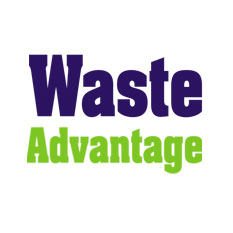ExxonMobil Agrees to Report on Plastic Pollution Pellet Spills
Plastic Recycling | 2019-03-28 06:37:35
Most plastic products originate from plastic pellets. Due to spills and poor handling procedures, billions of pellets are swept into waterways.
SEATTLE (Waste Advantage): Following engagement with As You Sow, ExxonMobil Corp. has agreed to start reporting on spills of pre-production plastic pellets, or nurdles, manufactured in polymer production plants, which are believed to be a significant source of ocean plastic pollution. ExxonMobil is a leading producer of plastics such as polypropylene and polyethylene. Its ExxonMobil Chemical Co., as a major petrochemical producer, operates facilities that produce plastic pellets. Under an agreement reached between As You Sow and the company, ExxonMobil will begin to report on plastic pellet management in a sustainability report to be issued in later this year. The company said it will provide details about where, how, and when it monitors for pellet spills, describe pellet management systems it has in place, and report on spills that occurred, although it says there were none in 2018. It will also describe how the company assesses the effectiveness of pellet loss prevention measures.
“We are pleased that ExxonMobil has agreed to do public reporting on plastic pellet spills and management,” said Conrad MacKerron, senior vice president at As You Sow. “It is important for all industry players to establish similar transparency so stakeholders can get a realistic view of the size and scope of this problem. We hope the other companies we are engaged with will follow its lead.” As You Sow agreed to withdraw its shareholder proposal in recognition of the agreement.
Most plastic products originate from plastic pellets. Due to spills and poor handling procedures, billions of pellets are swept into waterways during production or transport annually, and increasingly found on beaches and shorelines, adding to harmful levels of plastic pollution in the environment. Plastic pellets are estimated to be the second largest direct source of microplastic pollution to the ocean by weight.
When in the environment, plastics break up into smaller and smaller pieces that animals mistake for food; plastic pollution impacts 260 species, causing fatalities from ingestion, entanglement, suffocation, and drowning. Pellets are similar in size and shape to fish eggs and are often mistaken by marine animals for food.
Operation Clean Sweep is a chemical industry program that says it promotes best practices for pellet management and containment to members to reduce pellet loss, but the initiative provides no public reporting. After lack of responsiveness from companies last fall, As You Sow filed shareholder proposals with Chevron, DowDupont, ExxonMobil, and Phillips 66, which own large petrochemical operations, asking for annual reporting on spills and measures taken to prevent and clean up spills.
Courtesy: https://wasteadvantage.com
 By
By 